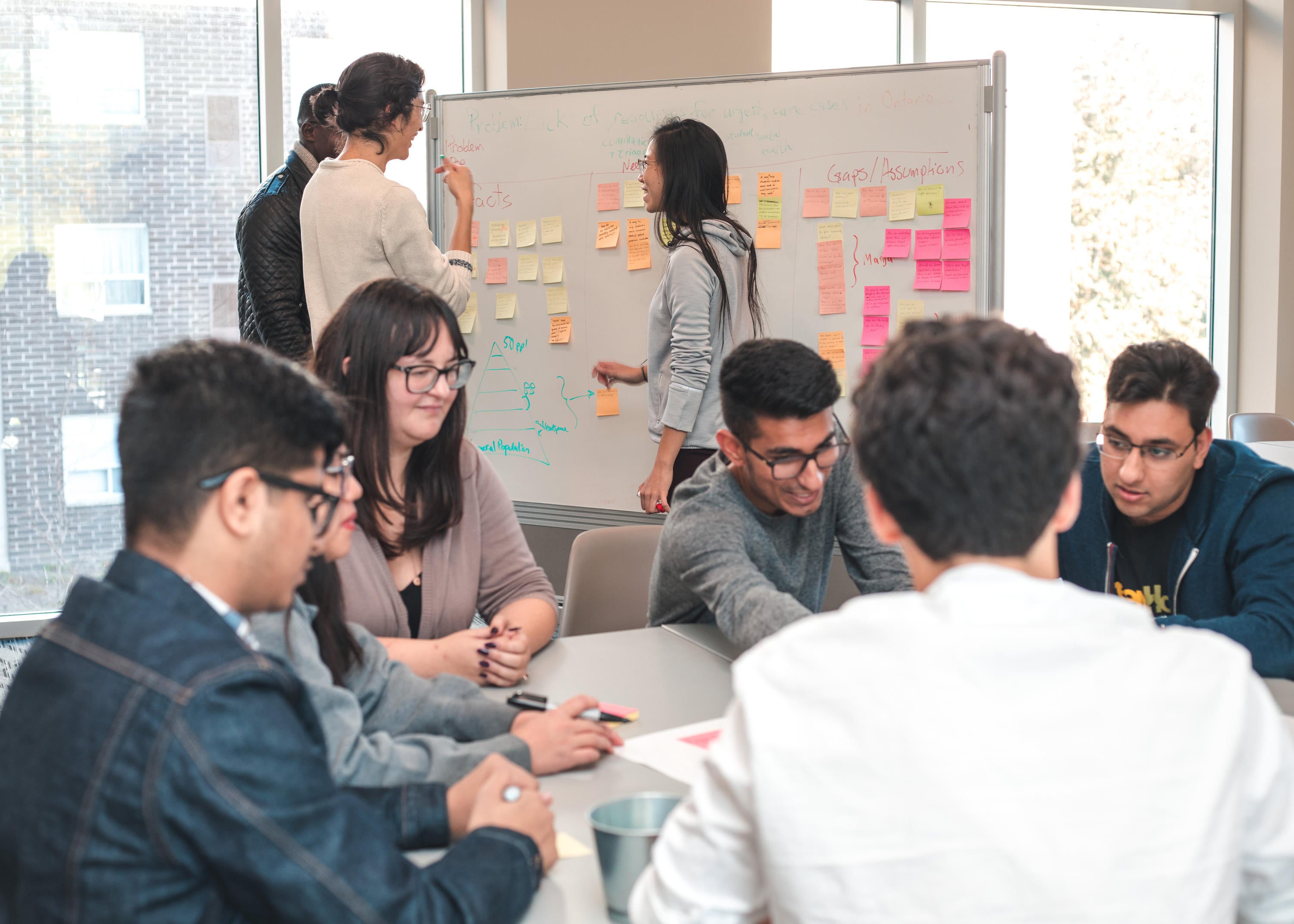
The day also kickstarted GreenHouse’s new Youth Innovation Program aimed at reducing the barriers for those who aren’t yet comfortable with postsecondary education by offering a program aimed at their interests and needs.
Anne says, “We focused on newcomer youth because our mission and vision at St. Paul’s is around supporting newcomers through our student refugee program, our partnership with Reception House and more.” In addition to newcomer youth, the discovery lab was also attended by Indigenous leaders, other students and representatives of Reception House and the Volunteer Action Centre.
Fourth year Health Studies student Christine Nhan, a current member of the Newcomer Youth Innovation Council, says, “The Discovery Lab was an exciting event that allowed youth to speak about and share their own volunteer experiences.”
This was exactly what Jane Hennig of the Volunteer Action Centre hoped would happen. “Neuroscience and developmental psychology tell us that from 15 to 25, young people’s brains are wired for innovation– as we’re on a precipice with volunteering in this country, with the face of volunteering changing dramatically and quickly, we wanted to engage young people in the solution. Young minds can come up with creative ideas and I’m excited to see what may come out of this. The Discovery Lab was the first touchpoint for this.”
During the lab itself, the Volunteer Action Centre, Reception House and Carizon shared how they interact with volunteers and some key challenges they face. Each participant was then asked to share one of their volunteer experiences through sketching and storytelling.
This process revealed key opportunities for innovation in volunteering, with a wide range of ideas from creating opportunities for younger children to volunteer to providing more detailed and accessible training.
At the end of the session, the ideas generated were used to frame some of the projects the newcomer youth will start to address through GreenHouse’s Youth Innovation Program. This program will involve biweekly meetings with teams where participants will learn skills from problem definition to interviewing, prototyping and implementation. During March Break, participants will take part in a three-day intensive program where they will share what they have learned to date with different organizations each morning, while in the afternoon will be introduced to different services on the UWaterloo campus. At the end of May 2020, the teams will present what they have learned throughout the program in an Innovation Showcase.
“We really hope this is a win-win situation,” says Jane. “The whole way we experience services relies on a volunteer base that may not be there much longer without creative solutions. We also hope that a program like this will build connections for youth, and especially newcomer youth, with the community and the university community.”
Thank-you to the Lyle S. Hallman Foundation for its generous support in supporting the youth innovation program.